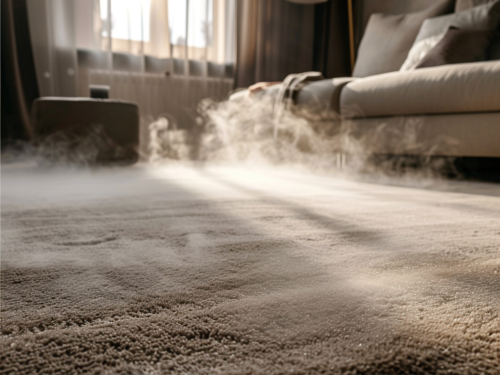
The Best flooring for allergies
Choosing the right flooring is crucial for allergy sufferers. The type of flooring in your home can greatly affect your health and comfort. In this blog, we will explore the best types of flooring for those who suffer from allergies. Understanding these options can help you make the best choice for a healthier home environment.
Why Flooring Matters for Allergy Sufferers
First, let’s discuss why flooring is important for allergy sufferers. Allergens like dust, pollen, pet dander, and mold can easily get trapped in certain types of flooring. This can make it difficult to keep your home clean and free of allergens. Therefore, choosing the right type of flooring can help reduce the presence of these allergens and improve indoor air quality.
Best Flooring Options for Allergy Sufferers
1. Hardwood Flooring
Hardwood flooring is an excellent choice for allergy sufferers. It is easy to clean and does not trap allergens like carpet does. Dust and other allergens can be quickly swept or vacuumed away. Moreover, hardwood floors are durable and can last for many years with proper care.
2. Tile Flooring
Tile flooring is another great option. Tiles are made from materials like ceramic or porcelain, which do not harbor dust or allergens. They are also water-resistant, which means mold and mildew are less likely to develop. Additionally, tile floors are easy to clean and maintain, making them a practical choice for allergy sufferers.
3. Vinyl Flooring
Vinyl flooring is also a good choice for those with allergies. Modern vinyl flooring comes in many styles, including options that look like hardwood or tile. Vinyl is easy to clean and does not trap allergens. It is also resistant to moisture, which helps prevent the growth of mold and mildew.
4. Laminate Flooring
Laminate flooring is similar to hardwood in appearance but is usually more affordable. It is also easy to clean and does not hold onto dust or allergens. Laminate flooring is made from synthetic materials, which makes it resistant to moisture and mold.
5. Cork Flooring
Cork flooring is a natural and hypoallergenic option. It is resistant to mold and mildew, which helps keep allergens at bay. Cork is also comfortable underfoot and provides a warm, soft surface. Additionally, cork flooring is eco-friendly and can be a great choice for environmentally conscious homeowners.
Flooring Options to Avoid
While some flooring options are great for allergy sufferers, others can make allergies worse. Here are some types of flooring to avoid:
1. Carpet
Carpet is not ideal for allergy sufferers because it traps dust, pollen, pet dander, and other allergens. Even with regular cleaning, it can be difficult to remove all the allergens from carpet fibers. If you love the feel of carpet, consider using area rugs that can be easily washed and replaced.
2. Rugs with High Pile
High-pile rugs are similar to carpets in that they can trap allergens. Instead, choose low-pile or flat-weave rugs that are easier to clean and do not hold onto dust and allergens.
Maintaining Allergy-Friendly Flooring
Once you have chosen the right flooring, it’s important to maintain it properly to keep allergens at bay. Here are some tips for maintaining allergy-friendly flooring:
1. Regular Cleaning
Sweep or vacuum your floors regularly to remove dust and allergens. Use a vacuum with a HEPA filter to capture even the smallest particles.
2. Mop Frequently
Mop hard floors with a damp mop to pick up any remaining dust and allergens. Avoid using harsh chemicals that can irritate allergies.
3. Control Humidity
Keep the humidity level in your home between 30-50% to prevent mold growth. Use a dehumidifier if necessary, especially in areas like the kitchen and bathroom.
In conclusion, choosing the right flooring is essential for allergy sufferers. Hardwood, tile, vinyl, laminate, and cork flooring are all excellent options that can help reduce allergens in your home. Avoid carpet and high-pile rugs, which can trap dust and other allergens. Regular cleaning and proper maintenance are also key to keeping your home allergy-friendly. By selecting the right flooring and taking care of it, you can create a healthier and more comfortable living environment.


